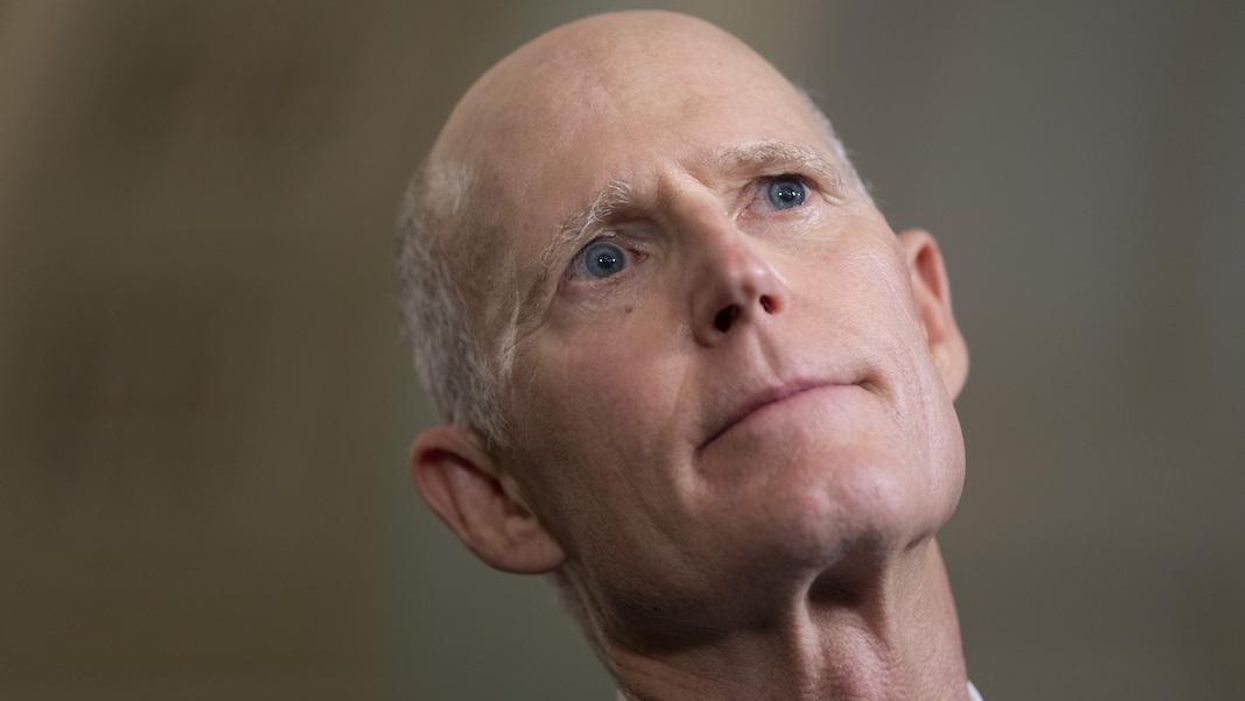GOP's Bizarre Midterm Agenda: Raise Taxes On Retirees, Slash Millions Of Jobs, And Worse
Florida Sen. Rick Scott released a plan on Tuesday outlining what the Republican Party would do if it wins congressional majorities in the midterm elections.
Under those proposals, millions of poor and retired families would see their taxes go up.
As chair of the National Republican Senatorial Committee, Scott is in charge of winning back a GOP majority in the upcoming 2022 midterms. Predicting that he would be successful, the Florida Republican wrote that he had authored an 11-point "Rescue America" plan to answer the question, "But then, what?"
"We must resolve to aim higher than the Republican Congresses that came before us. Americans deserve to know what we will do," he wrote.
He continued, "I'll warn you; this plan is not for the faint of heart. It will be ridiculed by the 'woke' left, mocked by Washington insiders, and strike fear in the heart of some Republicans. At least I hope so."
Hidden near the bottom of that plan's fifth bullet point, "economy/growth," Scott openly calls for a tax hike for the majority of Americans.
"All Americans should pay some income tax to have skin in the game, even if a small amount. Currently over half of Americans pay no income tax."
This would appear to contradict Scott's claim last November during an interview with Fox News, where he claimed he was "not going to raise anybody's taxes," when asked about repealing the 2017 Tax Cuts and Jobs Act, which was a boon to the super rich and large corporations.
A Scott spokesperson did not immediately respond to an inquiry for this story.
It is true that in 2020, as the COVID-19 pandemic continued to shut down much of the nation's economy, 61 percent of Americans owed no federal income taxes. (That's up from the roughly 47 percent that 2012 Republican presidential nominee Mitt Romney infamously complained about in a secretly recorded campaign speech, suggesting he could "never convince" those individuals "to take personal responsibility and care for their lives.")
The majority of people paying no federal income taxes, however, are low-income families who still pay payroll taxes for social safety net programs. Others include older Americans who are retired and no longer earning income and the very poorest citizens.
As economic experts at Urban Institute noted in 2012, those who pay no federal income taxes typically contribute to the federal government in other ways, including gasoline taxes, alcohol taxes, and tobacco taxes.
Scott's proposals include no mention of asking the richest Americans to pay more. Instead, his plan would mean larger tax bills for those making less than $28,000 per year.
The first-term Republican senator is one of the richest people in Congress, with an estimated net worth of more than $259 million in 2018. He has backed efforts to make the 2017 Tax Cuts and Jobs Act permanent for individuals — trying to extend former President Donald Trump's plan that helped millionaires and billionaires almost exclusively.
Scott's "Rescue America" plan also includes a wide array of other far-right proposals, including many that would directly harm working families.
It promises "no government assistance unless you are disabled or aggressively seeking work," an idea that would directly hurt children and retired older Americans.
It vows to "immediately cut the IRS funding and workforce by 50%," leaving an already badly understaffed agency even less able to deal with a backlog of tax returns and millions of requests for customer support from taxpayers, and calls for a reduction of "the government work force by 25% in 5 years," leaving more than 2 million public servants out of work.
The plan would explicitly "prohibit debt ceiling increases absent a declaration of war," making it impossible for the government to pay the interest on the trillions in debt accrued to pay for previous spending by Congress and risking 6 million jobs and $15 trillion in household wealth.
Scott's plan also bizarrely calls for a five-year "sunset" on all federal legislation, meaning that Congress — which struggles to even keep the government open — would have to reapprove every single law every five years.
This would put popular programs like Social Security, Medicare, and Medicaid — as well as federal civil rights laws, family and medical leave protections, and even even rules governing federal highways — at risk of totally expiring twice each decade.
Published with permission of The American Independent Foundation.









